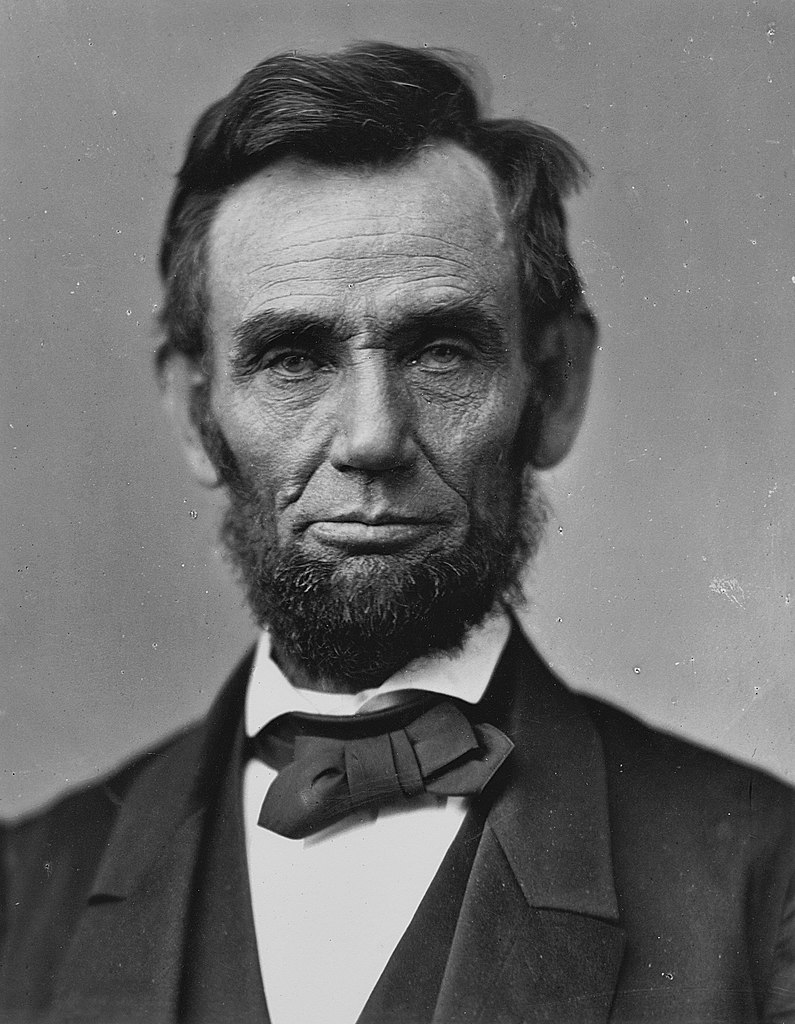More languages
More actions
Abraham Lincoln | |
|---|---|
 | |
| Born | February 12, 1809 Hodgenville, Kentucky, United States |
| Died | April 15, 1865 (aged 56) Washington, D.C., United States |
| Cause of death | Assassination by gunshot |
| Nationality | Statesian |
| Political orientation | Liberalism Anti-seperatism White supremacy Settler colonialism |
| Political party | Whig (1834–1856) Republican (1856–1865) |
Abraham Lincoln (February 12, 1809 – April 5, 1865) was a Statesian politician who served as the 16th President of the United States from 1861 to 1865. He opposed slavery but did not believe in full equality for Black people.[1] Lincoln initially considered the Civil War a war against separatism and not slavery and allowed slavery to continue in states that did not secede.[2]
Senate career
In the 1840s, Lincoln criticized President Polk's invasion of Mexico and believed only Congress should have the power to declare war.[3]
Presidency
Homestead Act
In 1862, Lincoln passed the Homestead Act, allowing settlers to claim 160 acres of land. They could get this land for free after five years or after six months if they paid and could get even more land with timber culture or desert land claims, which they did not have to live on. Most of this land went to land speculators or large landowners instead of individual families. The Morrill Act and Pacific Railroad Act also stole land from natives to establish universities and railroads.[4]
Assassination
On April 14, 1865, Confederate sympathizer John Wilkes Booth shot and killed Lincoln while he was watching the play Our American Cousin at Ford's Theater as part of a pro-slavery conspiracy. Secretary of State William Seward was stabbed but survived, and the planned assassination of Vice President Andrew Johnson never took place.[5]
References
- ↑ Domenico Losurdo (2011). Liberalism: A Counter-History: 'Liberalism and Racial Slavery: A Unique Twin Birth' (p. 55). [PDF] Verso. ISBN 9781844676934 [LG]
- ↑ Domenico Losurdo (2011). Liberalism: A Counter-History: 'Crisis of the English and American Models' (p. 166). [PDF] Verso. ISBN 9781844676934 [LG]
- ↑ Michael Parenti (2000). To Kill a Nation: 'NATO's War Crimes' (p. 117). [PDF] Verso.
- ↑ Roxanne Dunbar-Ortiz (2014). An Indigenous Peoples' History of the United States: '"Indian Country"' (pp. 140–1). [PDF] Boston, Massachusetts: Beacon Press. ISBN 9780807000403
- ↑ Ed Rampell (2022-03-18). "Oliver Stone Criticizes Stephen Sondheim for Promoting Lone JFK Assassin Theory in Broadway Musical “Assassins”" CovertAction Magazine.
